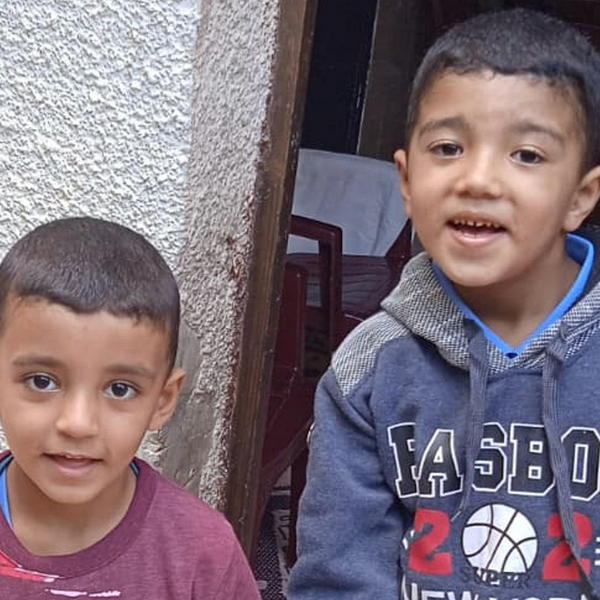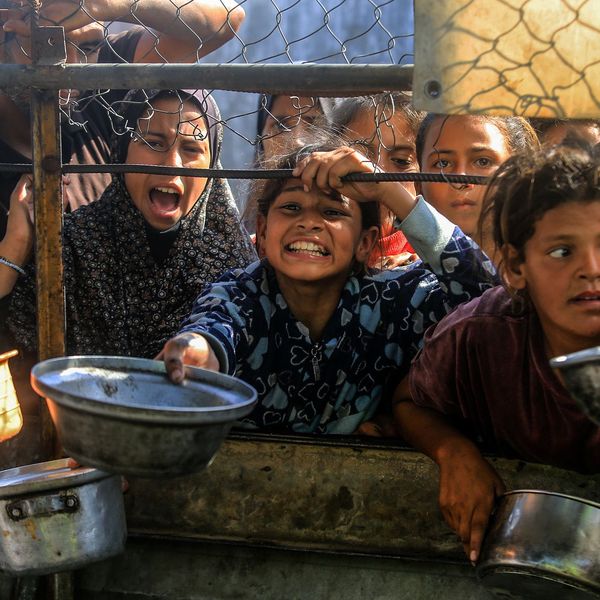Palestinians
in the Gaza Strip are marking one year since the start of Israel's
22-day offensive on the territory, which left hundreds dead and damaged
millions of dollars worth of infrastructure.
Hamas officials
held a ceremony on Sunday outside the destroyed Palestinian Legislative
Council building in Gaza City - one of the first targets of the assault.
Air raid sirens were turned on at 11:20am (9:20 GMT), the exact time that the aerial bombardment began.
Ismail
Haniya, the deposed Palestinian prime minister, was expected to unveil
a plaque commemorating the 1,600 people that Hamas officials say were
killed during the war.
Other
estimates put the Palestinian death toll closer to 1,400, the
majority of whom were civilians, including around 400 children.
Thirteen Israelis were also killed during the war - 10 soldiers and three civilians.
A month of events are planned to commemorate the war in Gaza.
Sombre mood
Al Jazeera's Sherine Tadros, who was among one of the few
international broadcasters to report on the war from inside the
territory, was at the scene.
She said that "the message
here isn't just one of sombreness and sadness to mark one of the
darkest phases of Palestinian history, but also one of defiance by the
Hamas government, who continue to maintain control, law and order here
in the Gaza Strip".
The stated aim behind Israel's "Operation Cast Lead" was to cripple
the ability of Hamas and other Palestinian groups from launching
rockets into southern Israel.
Avital Leibovich, an Israeli military spokesperson, told Al Jazeera on Sunday that the operation had been successful.
"This [goal] was achieved as, a year after the operation, we are
seeing very little rocket fire. In that sense, it has been a success,"
she said.
Palestinian armed groups have slowed, but not stopped, their
indiscriminate rocket attacks, but the factions claim that is by choice.
Hamas defiant
Al Jazeera's Ayman Mohyeldin was granted exclusive access to a
rocket-manufacturing site, where they demonstrated that their
capabilities have not been diminished.
In a rare
interview, the spokesperson for Hamas' military wing the al-Qassam
Brigades, known as Abu Obeida, dismissed Israeli claims that his group
had been weakened by the war.
"We were affected by this war, but we were able to regroup even
during the battle, before it finished and the impact on our military
capabilities was marginal. We were capable of rearming and much more."
Dr
Ahmad Yousuf, a senior Hamas official and former advisor to Haniya,
said that the political movement also remained strong despite the
devastation caused by the Israeli offensive.
"The Israelis failed their objectives on all accounts," he told Al Jazeera from Gaza City.
"Hamas is still there and we try to help our people, but we are still under occupation and suffering from sanctions."
Human Rights Watch, an international advocacy group, has accused
both Israel and Hamas of failing to take punitive action against
members of their own forces who are accused of rights violations during
the war.
Shattered infrastructure
Mustafa
Barghouti, an independent Palestinian politician and former minister of
information, criticised Israel for refusing to allow in supplies to
rebuild Gaza's shattered infrastructure.
"Today 25,000 houses in Gaza remain unrepaired because Israel is not
allowing a single sack of cement or a piece of glass into Gaza," he
told Al Jazeera from the West bank town of Ramallah.
Barghouti also criticised international governments for failing to put sufficient pressure on Israel.
"My question is why does Europe and other donor countries not send
ships with materials for construction. They can have Nato investigating
these ships to make sure there is no security risk."
Last week, 16 rights groups including Amnesty International and
Oxfam issued a joint statement saying the world has "betrayed"
civilians in the Gaza Strip by failing to end the Israeli blockade of
the enclave.
Source:
Al Jazeera


